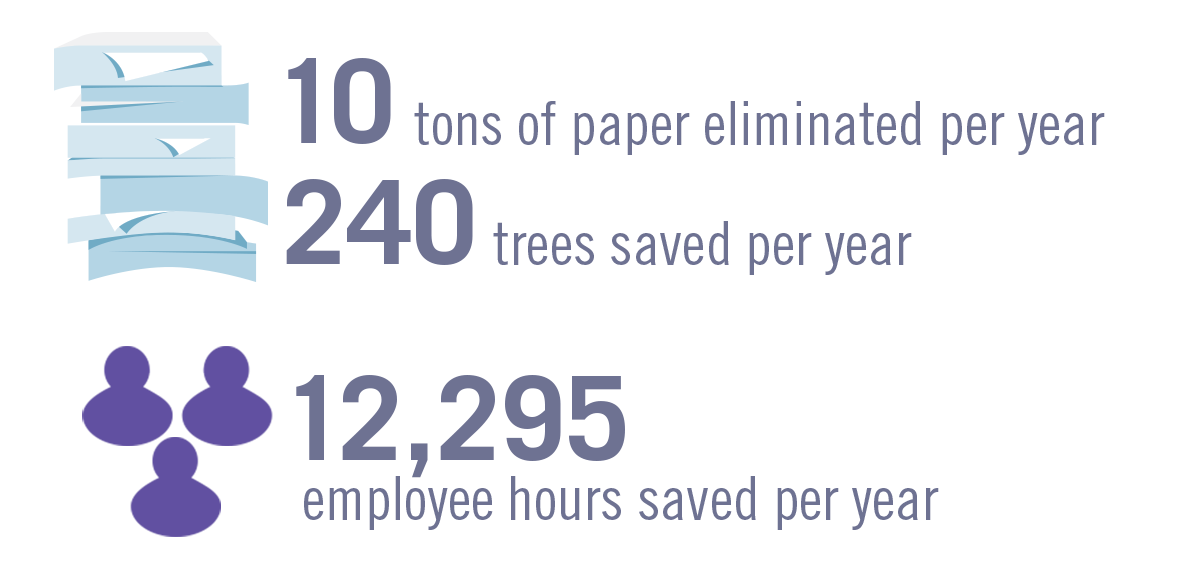Development of new functionality and extension of implementation to additional divisions remains a focus with the set of applications that support the administration of course and program development, review and approval, and publication and offering. While separate, these applications are being developed with points of integration with each other and with other NGSIS services.
Course information System (CIS):
The Course Information System supports the following undergraduate divisions:
- Faculty of Applied Science & Engineering (Exam Module)
- Faculty of Arts & Science
- Faculty of Kinesiology & Physical Education
- Faculty of Music
- John H. Daniels Faculty of Architecture, Landscape and Design
- University of Toronto Scarborough
The Course Information System has been successfully rolled out to most of U of T’s first-entry undergraduate divisions. The CIS team is working with the Faculty of Applied Science & Engineering to develop an end-to-end Syllabus Builder Module, which will be extended to include the Faculty of Arts & Science afterwards. This year, the team also collaborated closely with the University of Toronto Mississauga to complete our investigation to determine their best CIS onboarding strategy. The team is currently working with UTM to review resource requirements and finalize their onboarding timeline.
Projects for 2021 – 2022
Looking ahead, CIS is planning for future releases that will include the following enhancements:
- A new end-to-end Syllabi Creation Module that would enable an instructor to create a syllabus for their course completely within CIS.
- Implementing existing functionality for undergraduate courses in the University of Toronto Mississauga.
Projects Completed
The import of Course tagging from CM has been implemented to enable course instructors to identify and associate specific learning experiences as components expected to be completed by all enrolled students. This functionality will support clarity and transparency regarding student learning experiences within their programs and courses. In addition, additional functionality was delivered to allow instructors to provide additional session-specific information (subcategories) to course experience tags imported from Curriculum Management (see the entry for Curriculum Management).
Changes were delivered to support divisions on their requirements to address the COVID-19 situation. These far-reaching changes involved updates to the CIS system’s Syllabi, Exam Details and Final Exam modules to accommodate the collection of information for a hybrid course delivery approach.
Administrative controls are now available in CIS that allows divisional administrators the ability to configure when modules are available to their instructors. Administrators can also cross-list or group sections within a course or multiple courses, to allow for single submissions of details by instructors.
Administrators can also set deadlines for required submissions and have the system send automated reminders to instructors to submit information on time.
Administrators can now also access previous sessional data stored in CIS. This new functionality offers our administrators their data in a well-organized and easy-to-retrieve format while saving time for them, as there is no more need for storing and managing copies of information offline. In addition, it increases the overall security of the system as it ensures that only the right people can access the right files, which is of critical importance given the highly confidential nature of our documents.
The Exam Module in CIS has a complete, electronic end-to-end exam workflow. This process allows instructors to enter exam details, print options and upload their exams. Department administrators and chairs are then able to review and print exams, or electronically send them to an approved print location.
The Syllabus Module has implemented four areas of functionality:
- Basic Course Information: This information provides instructors with a high-level overview of important information regarding their courses such as sessional dates, requisite information, and lecture times and locations.
- Marking Scheme: This function allows instructors to complete the grading assessments for their course and receive immediate feedback regarding faculty and U of T policies and guidelines.
- Syllabi Policy and Procedure Statements: This section allows instructors to select from a list of required, recommended, and optional faculty and U of T policy statements. They also have the option to revise these statements or create their own and save them for later use.
- Syllabus upload and download
Accommodated Testing Services (ATS)
Started in March of 2019, and formerly known as Test and Exam Services, the Accommodated Testing Services (ATS) project leverages NGSIS products to introduce significant benefits to students registering for accommodated test writings; for instructors providing test details and documents; and for administrators tasked with keeping ATS processes working efficiently and in a timely manner. The system is being designed and implemented to support the administration of Accommodated Tests and Exams. Instructors, students and administrative staff will find the new process seamless, transparent and intuitive, providing easy online access to information through pre-existing U of T platforms. There will be multiple phases to this initiative. The ATS application is deployed in the new Azure Cloud, utilizing API calls residing also in the cloud.
Projects for 2022 – 2023
Phase 2 of the project will include the launch of a student request module on ACORN and the full roll-out of a new Accommodated Testing Services administrative application. Phase 2 expected completion is at the end of the calendar year 2022.
Following phase 2, phase 3 will focus on enhancing the various system components via rolling production releases, until all in-scope processes are completed and stabilized. There is also a plan to expand the work done within ATS to Accessibility Services. Requirements exploration will begin in the form of a discovery phase this year.
Projects Completed
For phase 1, ATS completed two pilots (fall 2019 and winter 2020) that included participation from the Faculty of Kinesiology & Physical Education, the Faculty of Arts & Science (three departments), the Faculty of Law, and the Leslie Dan Faculty of Pharmacy. The Accommodated Testing module in CIS was rolled out to all University of Toronto St. George (UTSG) instructors in fall 2020. Based on feedback received from instructors, administrators and ATS staff in fall 2020, a series of enhancements were rolled out at key times of the year between the winter 2021 and winter 2022 sessions. Additionally, new administrative functionality was introduced for academic administrators to manage accommodated testing within their units and the first modules of the new ATS staff system were completed.
Curriculum Management (CM):
Curriculum Management was the first product to be delivered through our original partnership with Kuali Inc.
The application allows divisions to create, maintain and retire courses and programs using customized divisional governance processes, and in tandem, allows NGSIS to create a central repository of courses and programs for U of T which can be integrated with various NGSIS systems. The SIS team has also developed specialized governance committee reports as well as diagnostic reports and lists for the divisions. Curriculum Management (CM) data is also exported for inclusion in publications generated by Curriculum Publisher (CP).
Projects for 2021 – 2022
Work for 2021-2022 includes the implementation of a new authorization framework. The remaining second-entry divisions will be approached to implement the application. We will also work with divisions currently using CM at the undergraduate level to import and manage their graduate courses. Analysis work will be undertaken to extend the configuration to cover the complexities of graduate program structures at U of T as well as data needs in the Office of the Vice-Provost Academic Programs and in the School of Graduate Studies with respect to tracking programs and academic change.
Course Experience Tagging
The Office of the Vice-Provost – Innovations in Undergraduate Education has been working with divisions to define data categories to identify courses designed to include work-integrated learning activities. These data points have been created in CM and are available to divisions to include in course proposals and revisions in the 2021-22 governance cycle. The data is available to the CIS and will be incorporated in CM data incorporated in Calendars and Timetable Builder.
Projects Completed
From 2019 to 2020, CM was extended to six divisions bringing the total to 10. This means that CM now covers all first-entry programs at U of T, which represents 89 percent of undergraduate courses. That course information is available to other systems, including Course Finder, Timetable Builder, ACORN, and the Course Information System, and so is viewable by students and faculty. The divisions currently using CM are listed below.
In 2020, a new workflow tool developed by Kuali was implemented to allow for more flexible configurations of divisional governance pathways. It will also make it possible to manage multi-division graduate courses through parallel governance review.
Curriculum Publisher (CP):
Curriculum Publisher (CP) is a U of T developed content management website that optionally interfaces with Kuali Curriculum Management (CM), allowing divisions to publish a public-facing Calendar or Academic Handbook. CP has undergone a major technical upgrade to Drupal 8.
Projects for 2021 – 2022
The University of Toronto Mississauga calendar was published in June 2021, which set a milestone for the project. CP sites are now in place for all the divisions using CM either for undergraduate calendars or graduate handbooks. The School of Graduate Studies calendar and the Faculty of Medicine MD program handbook are published in CP, although they do not yet make use of CM.
As divisions implement CM, CP will be made available, and we will work with the divisions to create new structures and templates for their calendars.
Technical upgrades were completed to move CP to cloud hosting in 2020. Each Calendar instance in CP was upgraded to Drupal 8 in 2020/21 and to Drupal 9 in the fall of 2021.
|
Curriculum Management |
Curriculum Publisher |
| Curriculum Management & Curriculum Publisher Usage |
Undergraduate Courses & Programs |
Graduate Courses |
Calendar / Handbook |
| First Entry |
| Faculty of Arts & Science |
|
X |
Calendar |
| University of Toronto Mississauga (UTM) |
|
X |
Calendar |
| University of Toronto Scarborough (UTSC) |
|
|
Calendar |
| John H. Daniels Faculty of Architecture, Landscape, and Design |
|
|
Calendar |
| Faculty of Applied Science & Engineering |
|
X |
Calendar |
| Faculty of Kinesiology & Physical Education |
|
X |
Calendar |
| Faculty of Music |
|
X |
Calendar |
| Second Entry & Graduate |
| Faculty of Information |
|
|
Both |
| Faculty of Medicine |
X |
X |
Handbook |
| Ontario Institute for Studies in Education (OISE) |
X |
|
Handbook |
| Leslie Dan Faculty of Pharmacy |
|
X |
Calendar |
| School of Graduate Studies |
X |
X |
Calendar |
Last updated April 2022
- A – Milestone: 6.0.0 Release, Occurs March 2022
- B – Milestone: 6.3.0 Release, Occurs August 2022
- C – Task: Angular 12 Hybrid, Starts January 2022, Ends February 2022
- D – Task: Syllabi Builder - Pilot 1 (FASE), Starts January 2022, Ends August 2022
- E – Task: Syllabi Builder - Pilot 2 (FAS), Starts May 2022, Ends November 2022
- F – Task: Syllabi Builder - Pilot 3 (UTSC), Starts August 2022, Ends January 2023
- G – Task: Syllabi Builder - Winter Enhancements, Starts May 2022, Ends October 2022
- H – Task: Syllabi Builder - Fall Updates (FAS), Starts May 2022, Ends August 2022
- I – Task: Final Exam Modules (UTM), Starts June 2022, Ends January 2023
- A – Milestone: CIS 6.1.0, Occurs May 2022
- B – Task: Upgrades & Workflow Enhancements, Starts January 2022, Ends May 2022
- C – Milestone: ATS 1.2.0 Release, Occurs June 2022
- D – Task: Test Definitions & Workflow, Starts January 2022, Ends June 2022
- E – Task: Test Bookings, Student Functionality, Starts January 2022, Ends June 2022
- F – Task: Export to Clockwork, Instructor II, Space Allocation I, Student II, Starts July 2022, Ends January 2023
- A – Task: Curriculum Publisher - Calendar Updates, Starts January 2022, Ends August 2022
- B – Task: Drupal 10 Update, Starts August 2022, Ends November 2022
- C – Task: Graduate Program Analysis, Starts June 2022, Ends January 2023








